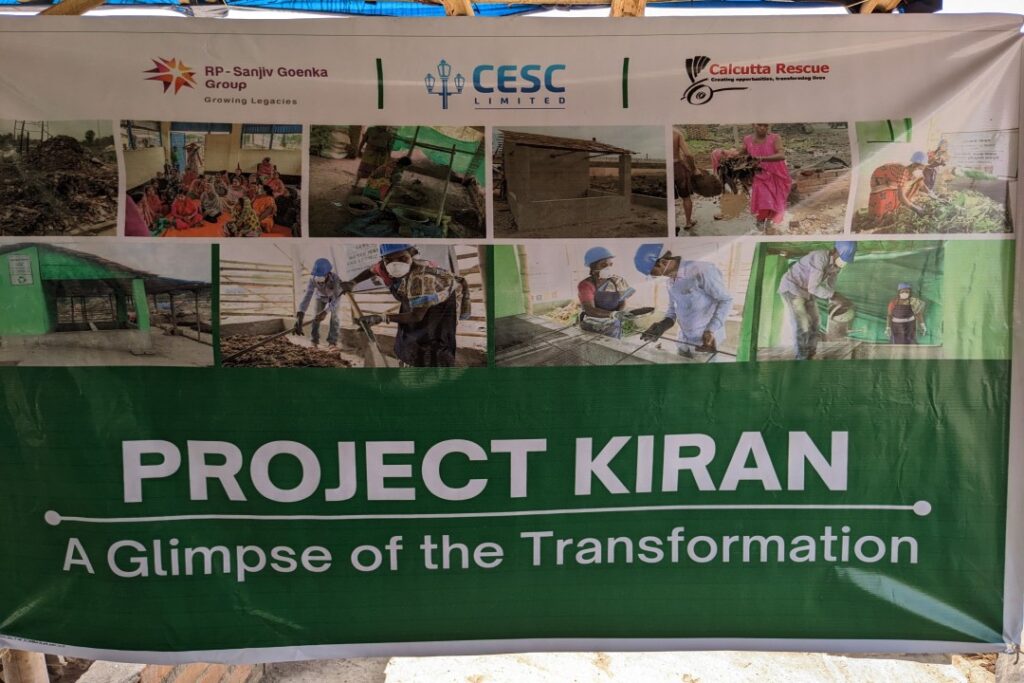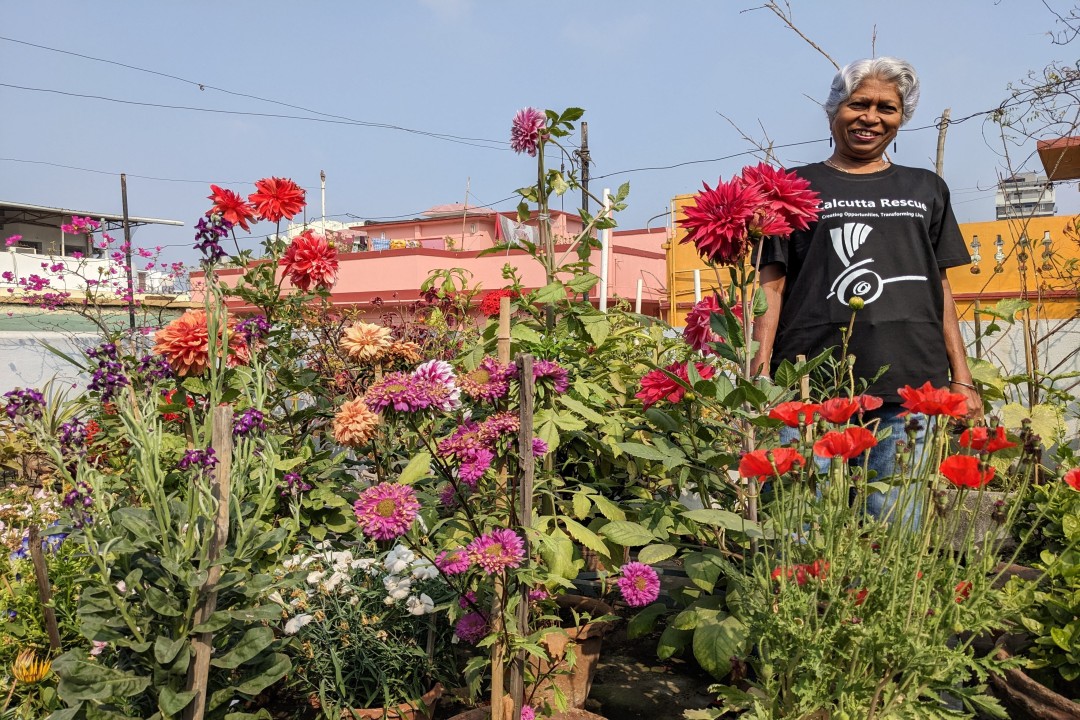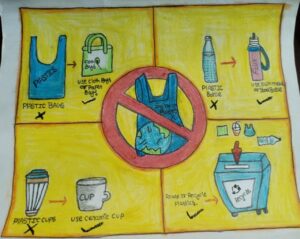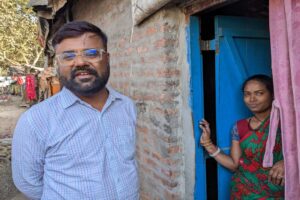
By Sean Duggan
“This is our best season ever for flowers. We have never been able to grow poppies before,” said Connie Choudhuri, standing proudly in her roof garden in Ballygunge surrounded by an array of magnificent blooms.
And the secret of her success this year? She insists it is all down to the new compost that she has been buying from Calcutta Rescue’s new vermiculture project. The stuff is black gold according to Connie. Intrigued, I head up to the slum in Dakshineswar to see how it is made.
This bustee is a test-bed for many of CR’s projects. It is where, under Dr Jack’s guidance initially, the NGO first began to improve slum infrastructure – building toilets and bathing areas and helping install electricity and clean drinking water.
Now it sports a purpose-built new structure which is home to tens of thousands of worms.
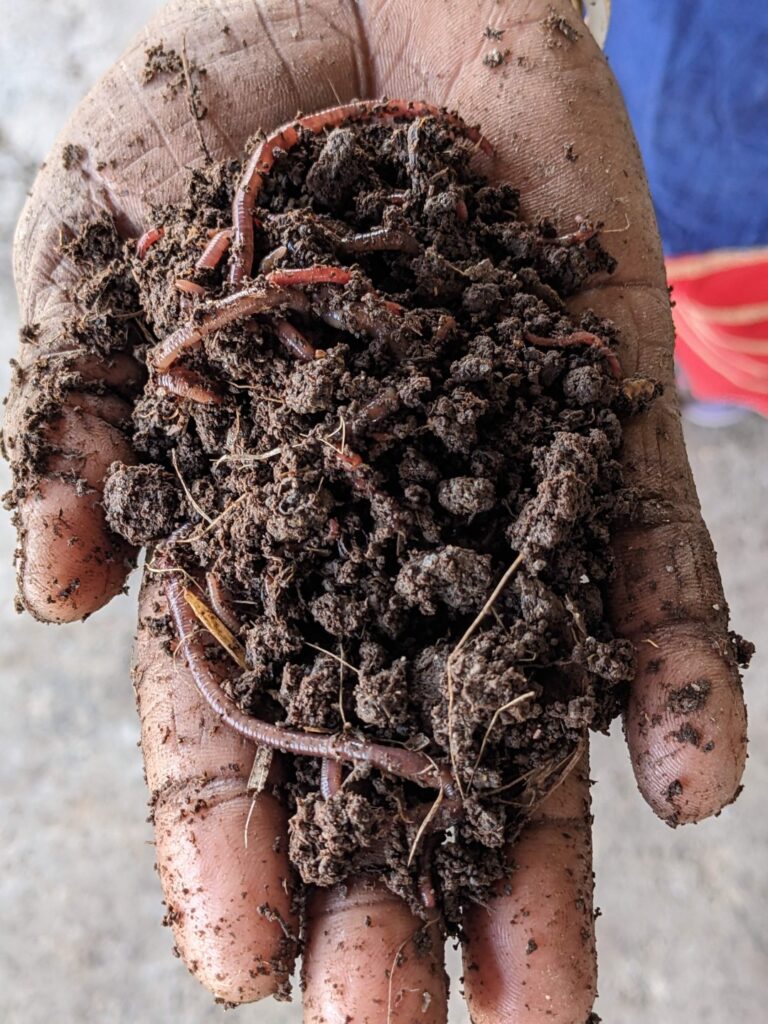
The first 5 kg of live ones were shipped in from Australia, now there are double that quantity.
Since it opened late last year women from the slum have been employed to collect organic material to feed the worms.
This is made of food waste, invasive water hyacinth that chokes many ponds, banana leaves and cow dung that they collect from the surrounding area. This then decomposes and is fed to the worms in a big concrete bed who eagerly consume it and turn it into fine dark compost.
It is a time-consuming and labour intensive process, both in terms of collecting the waste, waiting for the worms to do their work, and sieving the resulting compost to remove all the worms and put them back into their bed.
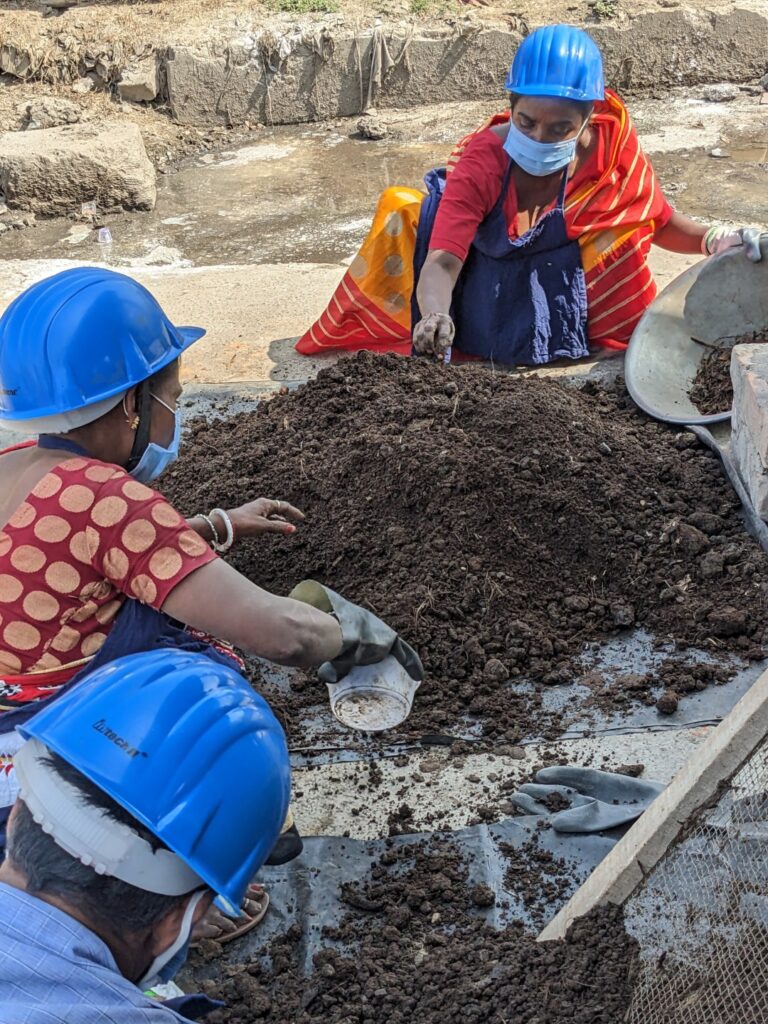
By the end of the 45 day process there is only an eighth of the weight of material that there was at the beginning. So the very first batch of 1,800 kg of organic material yielded just 241 kg of compost.
But what is left is black gold, rich in nutrients to fuel fantastic flowers, fruit and vegetables. Funded by CESC Limited, this innovative partnership with CR is called Project Kiran (which means light). It is in its early days and it will need to expand substantially in order to be commercially viable.
But space has been created at the site for this expansion and there are already people queuing up at the slum eager to get trained and start work at the project. And it will need to prove that it can survive the hot season. Staff have already had to build a canopy around the building to create more shade as the mixture must be kept moist for the worms to do their work.
During my visit we met one who was a keen gardener, even though she only has a few pots in which to grow plants. I also met Jharna and Monika, two of the first employees, who were clearly very proud of what they are doing.
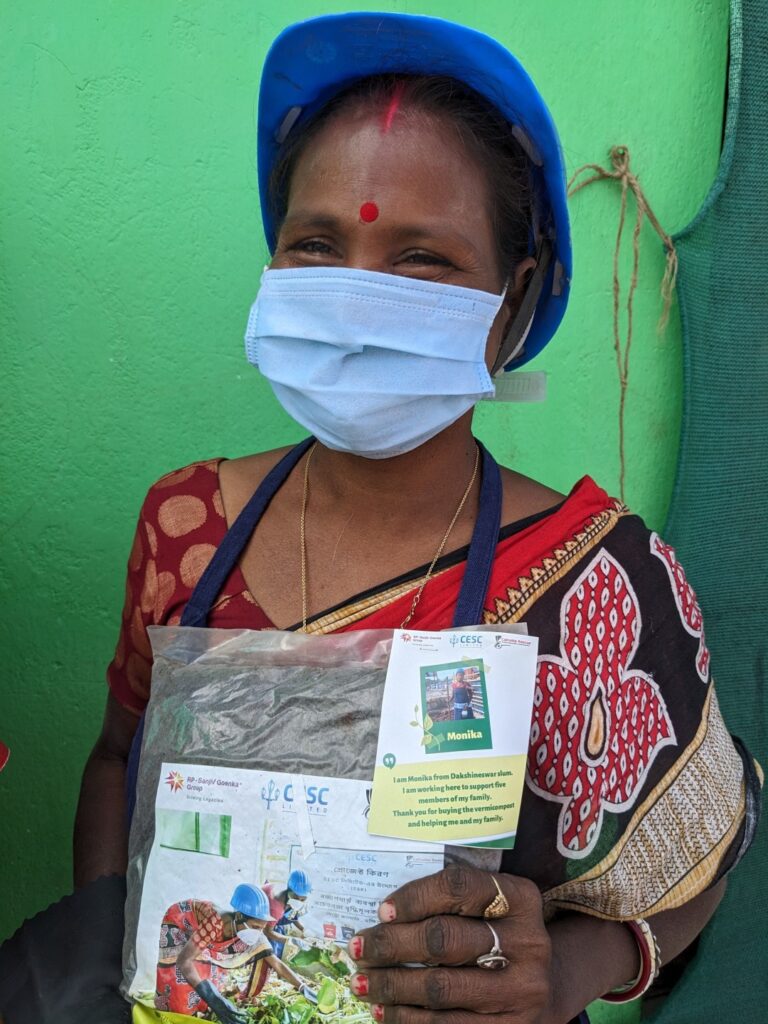
I was also impressed by the marketing flair involved, as their faces and stories feature on cards attached to every bag of compost produced.
So far much of what has been produced has been snapped up by gardeners who know about CR, like Connie, whose husband is the vice chairman of the NGO’s governing council. Over the coming year, as production ramps up, more should become available for sale.
The benefits of Project Kiran, apart from producing outstanding compost, are that it provides employment for bustee dwellers, stops waste, and helps to create a cleaner environment in the local area. That is a powerful combination of benefits, and many people are watching Project Kiran closely as this is believed to be the first such urban project of this type in Kolkata.
If it is a success, then the potential to replicate it in other slums across the city and beyond is huge.
